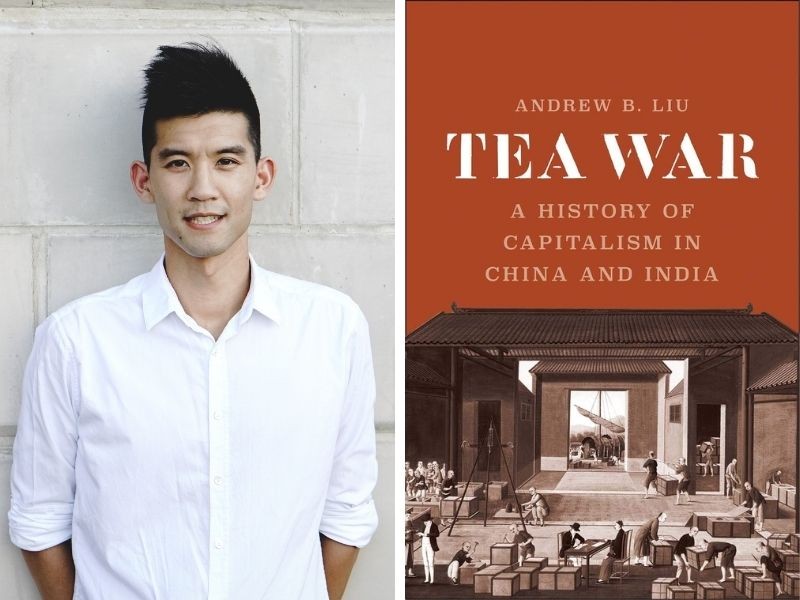Tense Teatime: History Professor’s Book Explores the Competition between Chinese and Indian Tea Industries

Tea continues to be the most popular commercial beverage in the world. It played an even larger role driving the integration of China and India into the global economy during the late nineteenth and early twentieth centuries.
In his new book, Tea War: A History of Capitalism in China and India (Yale University Press, 2020), Andrew Liu, PhD, assistant professor in the Department of History, explores the significance of tea in the economic history of China and south Asia. By extension, this work also contributes to a burgeoning interest in reimaging the history of capitalism on a global scale. Tea War analyzes the competition between the Chinese and Indian tea industries, emphasizing the history of labor, economic history, and the history of political-economic thought.
“In Tea War, Andy Liu grapples with the question of how to write the history of capitalism beyond the North Atlantic. His comparative study of two Asian frontier regions presses us to rethink the conventional signposts around which the history of capitalism has conventionally been written. He shows how careful empirical inquiry and social theory can inform each other in innovative and exciting ways,” says Andrew Sartori, New York University, about the book.
Dr. Liu’s other research interests include social theory, political economy and labor, the history of technology, modern south and east Asia, modern Chinese history within global and comparative contexts, and the methods of comparative and global history. His work has also been featured in the Journal of Historical Sociology, Past and Present, and the Journal of Asian Studies. He received his doctorate from Columbia University.
About Villanova University’s College of Liberal Arts and Sciences: Since its founding in 1842, Villanova University’s College of Liberal Arts and Sciences has cultivated knowledge, understanding and intellectual courage for a purposeful life in a challenging and changing world. With more than 40 majors across the humanities, social sciences and natural sciences, it is the oldest and largest of Villanova’s colleges, serving more than 4,500 undergraduate and graduate students each year. The College is committed to a teacher-scholar model, offering outstanding undergraduate and graduate research opportunities and a rigorous core curriculum that prepares students to become critical thinkers, strong communicators and ethical leaders with a truly global perspective.
